NSW hospital assaults: Nurses share nightmare stories as record number of attacks revealed
A shocking surge in verbal and physical attacks on frontline workers in NSW hospitals is at a crisis point, with more than 1000 incidents recorded in a year. Watch as health workers detail their horror.
NSW
Don't miss out on the headlines from NSW. Followed categories will be added to My News.
A skyrocketing “Code Black” crisis is gripping hospitals, with the number of assaults recorded on hospital grounds reaching record levels.
More than 1000 incidents of assault were recorded last year, as nurses reveal horror stories of verbal and physical attacks, sexual assault and their own hospitalisation.
The latest Bureau of Crime Statistics and Research data reveals Western Sydney hospitals were hardest hit, with 100 incidents in the Penrith local government area in 2023 and hospitals in the Sydney, Randwick and Parramatta areas close behind.
Assaults reported on hospital grounds have almost doubled in the last 10 years, going from 526 incidents in 2013 and 1036 reported last year.
Veteran nurse and NSW Nurses and Midwives Westmead Hospital branch assistant secretary, Debra Hallett, said she had been hit, kicked, punched spatter, and experienced multiple threats in the workplace over her 18-year career.
The nurse revealed she had a patient threaten to “rape and kill her”.
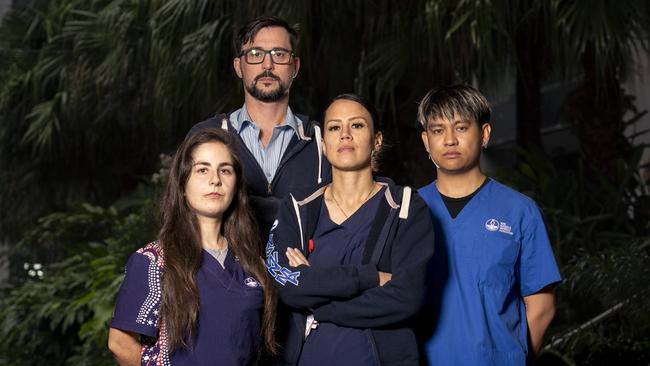
“They threatened to go after my family,” she toldThe Sunday Telegraph. “I’ve had to have security escort me from the end of my shift to where I parked my car because – they said that they were going to jump me.”
Ms Hallett said she has “permanent scars” as a result of attacks in the workplace.
NSWNMA Cumberland Hospital branch president and western Sydney ICU nurse, Nick Howson, said he and his colleagues experienced violence regularly.
The ICU nurse said he was hospitalised with “spinal precautions” after being assaulted by a patient.
“Violence happens in hospitals due to unmet needs,” he said. “We’re exhausted and it results in violence, violence and aggression that we shouldn’t be exposed to.”
The rise in Code Black calls for violent incidents in the emergency department comes following sweeping reforms of security measures across NSW after an in-depth inquiry by former NSW Health Minister Peter Anderson in 2020.
One of several recommendations called for a standardised “Code Black” procedure to put in place across all hospitals in NSW.
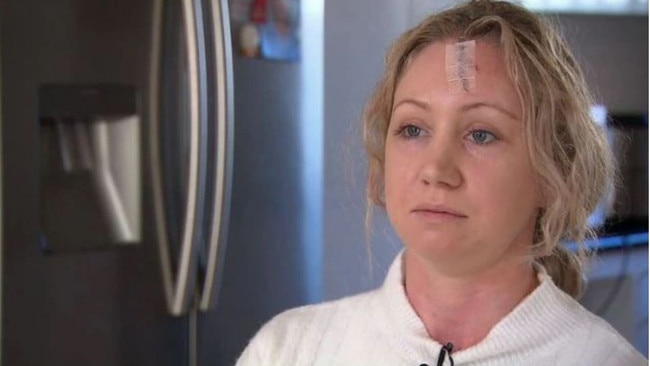
Just months before Mr Anderson handed down his findings, western Sydney nurse Bec Davies, 31, was attacked by a patient in Westmead Hospital – leaving her with a laceration to her scalp and 16 stitches.
The drug-fuelled attack by 26-year-old Jack Solomon was sparked after he was admitted to Westmead Hospital in the early hours of the morning, as the specialist nurse was finishing up a night shift.
Solomon was charged with assault, assault occasioning actual bodily harm and reckless wounding, and was sentenced to a two-and-a-half year term to be served in the community.
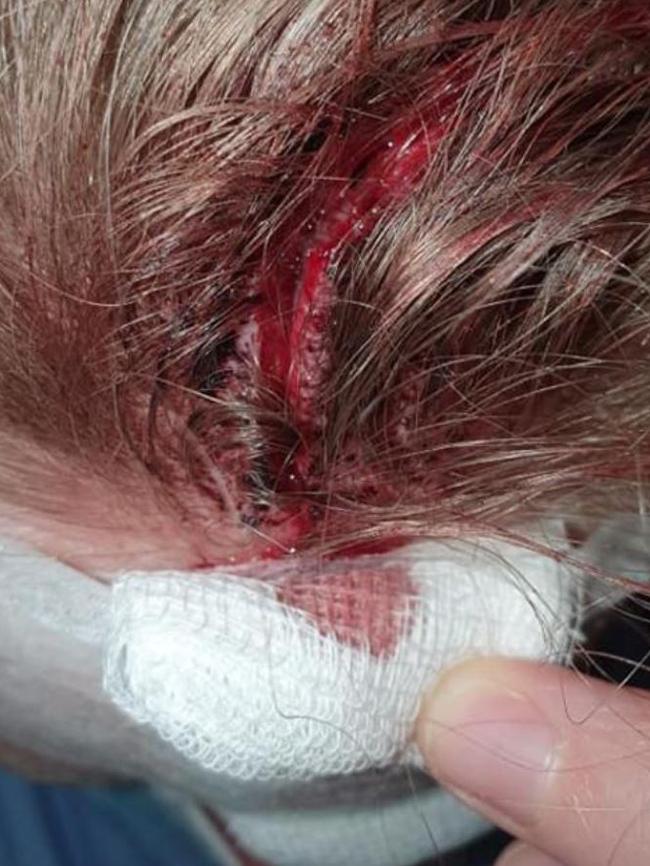
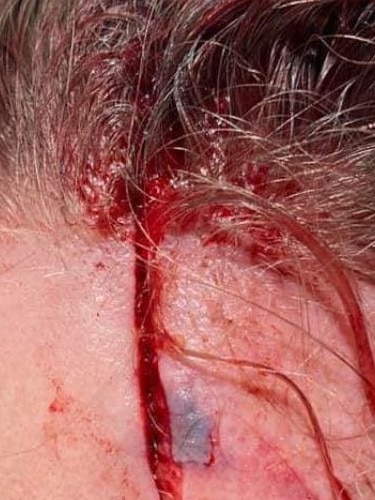
In October 2018, a former nurse-turned-ice user escaped conviction on “mental impairment” grounds after he shot a NSW Police officer and a security guard at Nepean Hospital in 2016 after holding a doctor hostage at knifepoint.
Former District Court Judge Christopher Robinson dismissed the case after the 41-year-old pleaded not guilty to 11 charges, including shooting with intent to murder.
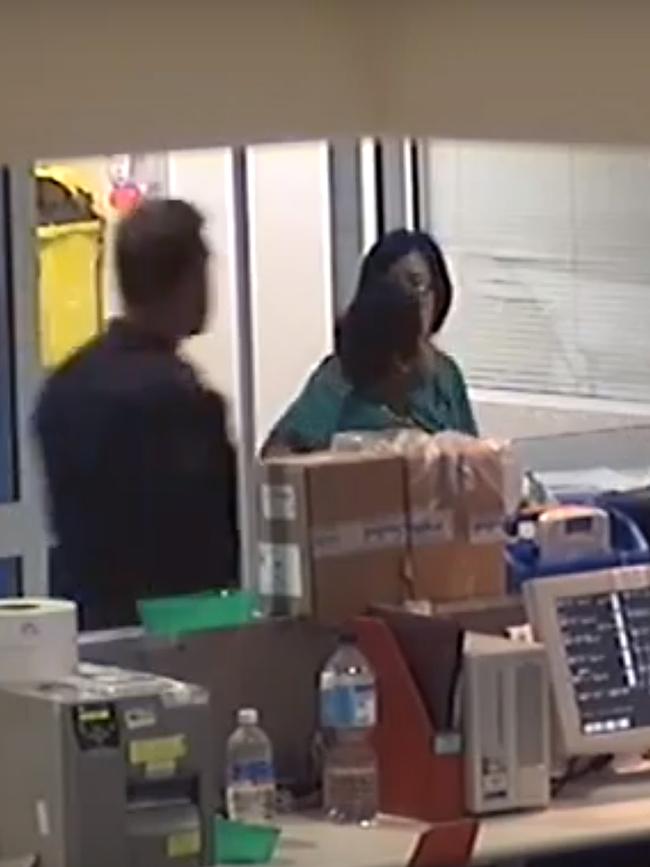
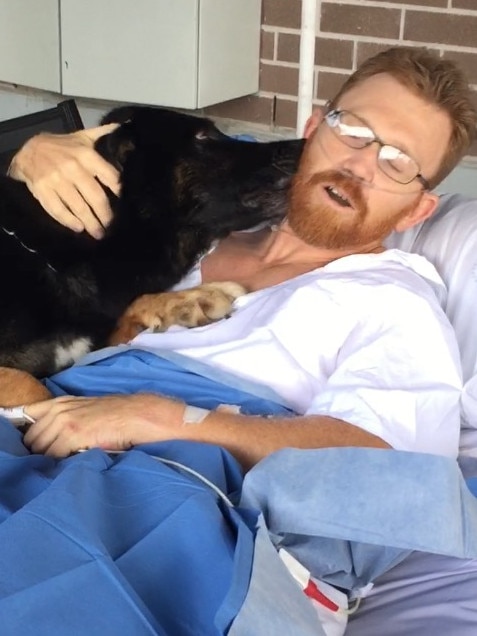
CCTV footage of the harrowing events inside the Nepean Hospital emergency department showed Michael de Guzman grab a female doctor and hold a pair of scissors to her throat – holding her hostage for 20 minute – before Sergeant Luke Warburton arrived at the scene to negotiate with the man.
The court heard the specialist Police dog handler had unknowingly unlocked his holster before de Guzman grabbed the officer’s Glock and shot him in the leg, before turning the gun on a hospital security guard.
De Guzman had his charges dismissed on mental impairment grounds – he pleaded not guilty on those grounds but didn’t object to his actions.
A NSW Health spokeswoman told The Sunday Telegraph BOCSAR data included both private and public hospitals and “is not limited to assaults against NSW Health workers”.
“Staff and patient safety is our top priority and NSW Health is committed to continuously
improving the safety of our facilities and the support and training available to all staff,” she said. “NSW Health staff are trained to identify the early warning signs of aggression and multidisciplinary Code Back teams are in place to respond to personal threat situations.”
She said standardised procedures are in place across all NSW Health hospitals “to support timely and effective responses”.
“A significant amount of work has been done across NSW Health to address the recommendations from Mr Anderson’s report, with almost all of the recommendations implemented.”





